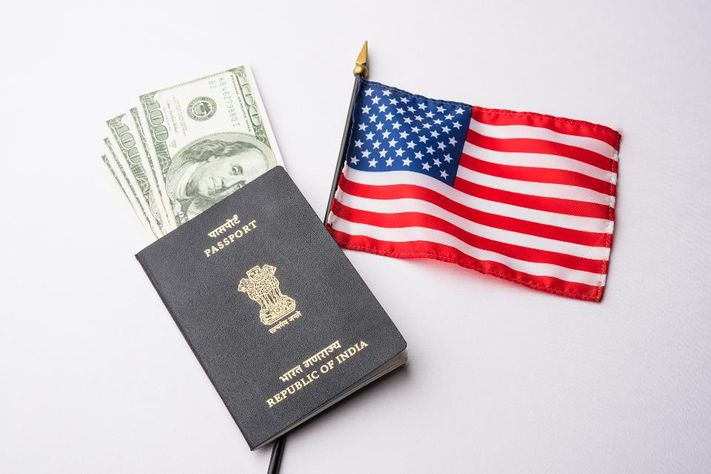U.S. President Donald Trump is known for his protectionist policies. In series of such moves, he announced a ban on non-immigration working visas till the end of this year. The White House, in an official statement, said: “many American workers had been hurt by the coronavirus pandemic and they should not remain on the side-lines while being replaced by new foreign labour”.
U.S. President Mr Donald Trump signed an executive order on Tuesday, which extends the ban on immigrant and non-immigrant worker visas until the end of this year. Working visas viz., the H1B and H2B, H4, J, and L shall remain suspended till December 31st of this year.
Also Read: Future of Tourism with COVID-19
These visas were already under suspension due to Coronavirus Pandemic, but Mr Trump has further extended the date of suspension to protect the interest of native Americans. Some are saying that this move is politically motivated as elections are coming near in the United States and President is trying to lure voters by such a move.

Impact of this move on IT companies
The ban on these working visas is likely to have the biggest impact globally, and more specifically on Indian IT firms and employees. Not only this order suspends the visa but it also replaced the existing lottery system in awarding H1B with a system that privileges applicants who are paid more than others. Though Major Indian IT companies have progressively cut down their dependence on H1B visas, their margins will be put under pressure by the new system.
Most of the global tech giants outsource their service, backend database, maintenance and updation jobs to Indian IT firms. However, skilled employees from these organisations travel to the US on client site visits, and to work on more specialised requirements. These companies outsource these jobs to Indian companies as they get cheap manpower in India as compared to the US or other developed countries. But due to many Coronavirus Pandemic people are losing jobs worldwide and companies are also trying to cut-off their expenses. So in order to protect the jobs of locals, the US suspended these visas.
The Donald Trump’s order in the US attracted strong reactions from many stakeholders of tech companies like CEO of Alphabet Inc. and Google Sundar Pichai, CEO of Tesla and SpaceX Elon Musk and many other global tech owners.
Mr Sunder Pichai tweeted “Disappointed by today’s proclamation — we’ll continue to stand with immigrants and work to expand opportunity for all.”
Immigration has contributed immensely to America’s economic success, making it a global leader in tech, and also Google the company it is today. Disappointed by today’s proclamation – we’ll continue to stand with immigrants and work to expand opportunity for all.
— Sundar Pichai (@sundarpichai) June 22, 2020
Elon Musk said, “H1B visa holders had skill sets that were net job creators, and criticised the proclamation.”
Jessica Herrera-Flanigan, a Twitter official, said: “unilaterally and unnecessarily stifling America’s attractiveness to global, high-skilled talent is short-sighted and deeply damaging to the economic strength of the United States”.
Statement on US high-skilled immigration proclamation:
— Twitter Public Policy (@Policy) June 22, 2020
“This proclamation undermines America’s greatest economic asset: its diversity. People from all over the world come here to join our labor force, pay taxes, and contribute to our global competitiveness on the world stage.
In 2018-19, 3 tech giants viz., Google, Facebook, and Apple hired more than 13,000 highly skilled IT workers through H1B visas. According to the official data, for the period of October 2020 to September 2021, the US Citizenship and Immigration Services (USCIS) received more than 2.5 lakh H1B visa applications until April 1st of this year. Out of these total applications, 1.84 lakh around 67 per cent of the applications were only from India.
Indian IT and IT-enabled services industry body NASSCOM said that the decision is “misguided and harmful to the US economy. Thousands of US corporations, universities, medical facilities, research institutions, directly and through their associations have asked the President not to take such action because of the harm it would do now and going forward as the country reopens and recovers.”
